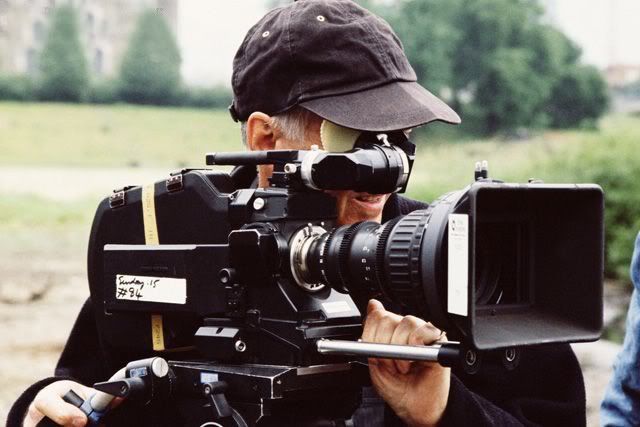3 WAYS TO BREAK INTO LONG FORM
by Kathleen McLaughlin

Whether the goal is to spearhead big studio tent-poles or helm smaller independents, the time has never been better for directors to take control of the creative process and forge their own careers. Enterprising auteurs are turning out terrific work on the Internet and while film school is still a gateway to a career as a feature film director, it is no longer the only, or even the best path to a career in feature films. Here are just a few other ways to start making it happen.
Create a product
As a director you’re looking for someone to take a chance on you, but if you write a killer script you’ve also got a product to sell. With studio development budgets slashed and indies looking for go projects, if you want to be a director, do what the screenwriters’ do: develop your own material and create a some great material. Read screenplays; find a book or graphic novel, flesh out your own ideas. Alfred Hitchcock used to say that once he’d finished developing the screenplay he didn’t need to shoot because he’d already made the film. Like Hitchcock, find a story you love, “direct it on paper” and give them the confidence that they can’t see anyone else doing the job but you.
If you’re not a writer…don’t
Okay, you’ve got a great idea but you discover you’re just not a screenwriter. The truth is that the bar is set higher for a screenplay written by a director. If the idea is great but the execution isn’t they may question whether you can you execute it on screen. No one wants to hear, “we’re going to buy your project but we’d like you to step aside as director.” So what do you do? Forget about calling that friend of yours who writes on the weekends—to do this right you need to find a professional. This is where teaming up with a development producer comes in. Find someone who knows how to get you focused, listen to your ideas and make them sing on the page in a logline, synopsis, or treatment with market appeal. Someone to help you find and inspire the right professional screenwriter. They can also become the creative guardian of your original vision once production is in full swing, keeping track of every plot point, character nuance and back story element so you don’t have to.
Don’t wait for your agent to call
Agents are great when it comes to making introductions and making deals. What agents don’t have is the time to nurture careers— they’re too busy trying to book jobs. Make sure you’re out there meeting people. If you have a developed project it’s a great excuse to get in a room with someone you want to work on just about anything with. This is the best way to not only make your own opportunity, but to find out who’s looking for the kind of material that fits your sensibilities. It will also give you an inside track on those tricky projects that aren’t on the top of your agent’s open directing list but are just waiting for the right director to come in with a passionate take that will kick-start it.
Always have something up your sleeve
When you do get into a room with someone who has the ability to hire you and change your life, make sure you’ve got something to offer. Whether it’s a pitch meeting, a directing gig or a general, the question will come up, “what else are you working on?” If you have one or two things on your own personal development slate it will not only give the other person a deeper understanding of you, it may lead to a continuation of the conversation about your work, and maybe even another deal.
Be the one with all the answers
When hiring a director, producers and studios are looking for someone they can trust to captain their multi-million dollar ship. Show them you’ve thought through both the creative and practical challenges of the shoot, and have solutions. Speak with confidence so they know you can handle the cast and crew. Find the approach that’s right for you. Not everyone has the outgoing energy of a McG or Brett Ratner, but the cerebral versatility of a Steven Soderbergh or the quiet confidence of a Sofia Coppola can be just as reassuring. A development producer can prep your take and troubleshoot ideas. Once you’ve got the job they can also help navigate studio notes diplomatically while helping you preserve your original creative take.
And….”Action.”

Boom shkaalkaa boom boom, problem solved.
You get a lot of respect from me for writing these helpful arislcet.